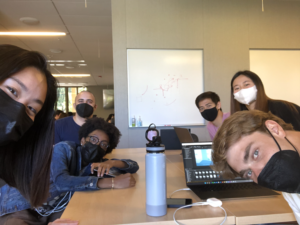Before taking this class, I had only thought about games from a consumer’s perspective. As someone who has played video games since I was young and often spent my free time playing video games, I had only ever thought about aspects of games that make me enjoy them. After taking this class, I can say that I have a newfound appreciation for all of the thought, energy, and time that goes into making a game fair and fun for everyone. I honestly did think that I would be already familiar with most of the topics we discussed in the class as a long-time gamer. I was correct to some extent, but looking at these concepts from the perspective of a game designer is an entirely different experience.
Out of the many game design concepts that we discussed in the class, I had given thought to some of them previously but never considered the perspective of the game creator. For example, when playing games that involve luck or chance, I would often get frustrated at the game and berate the game creators for making a game that isn’t purely about skill. After the discussion and assignment regarding balancing chance and skill in games, I now have a better understanding of why and how game creators balance chance and skill. Specifically, I hadn’t considered the fact that different balances of luck and skill can make the game more appealing for target audiences. Plus, a little bit of luck involved can make any game more exciting!
As another example, I have always loved the social aspect of multiplayer games, whether it manifests itself in cooperation or competition. I think that interacting with other players online who are playing the same game as you is a really special experience. The assignment about game design principles for building friendships brought back great memories from playing Realm of the Mad God in middle school, but more importantly got me thinking more deeply about the mechanisms in a game that allow for social interaction between players. If it weren’t for careful multiplayer game design choices, social interaction might be sparse with a lack of proximity between players and incentive to cooperate or compete with other players. Understanding these concepts from a design perspective has made me consider these design decisions as a player of these games.
Having never tried creating games prior to this class, learning how to use Unity was both an enriching and humbling experience. I was lucky to have teammates who had prior experience using Unity to help me along the way, but I realized that Unity was unbelievably more difficult and complex than I could have imagined. Building a game while struggling to learn Unity at the same time definitely pushed me to learn how to use a new technology in a way that many of my recent computer science classes haven’t done. I now have a new understanding for why game development takes so long. Even the smallest of bugs to fix or features to implement can take an enormous amount of time. Working with Unity also demonstrated how difficult it is to work with other game developers in parallel; exporting packages with various mechanics and assets for our game and importing and integrating them into our working version proved to be no easy task.
One aspect of this class that really helped me grow was the philosophy behind iterating on game prototypes for the projects. I’ve always been more comfortable coming up with strict plans and sticking to them no matter what, but the two projects in this class necessitated open-minded thinking and flexibility with our concepts. This was especially important in our first project, where we created an analog judging game. In the initial stages of our prototype, our team struggled with differentiating our game from other judging games. A willingness to come up with new ideas and make risky changes to our game benefitted us greatly, and contributed to a final product that we were all very proud of.
If I decide to continue working on games, it would probably be as a side project rather than a career. I am so grateful that this class has given me the tools and vision to see that as a real possibility. The class has given me a great foundation in game design principles as well as some more reasonable expectations about how difficult it is to work with a game engine. The projects were a really nice way to round out the class and gave us something satisfying and tangible to leave the class with.
Thank you to the course staff and especially to our awesome TA Jean for guiding and encouraging us through our projects!
![]()



